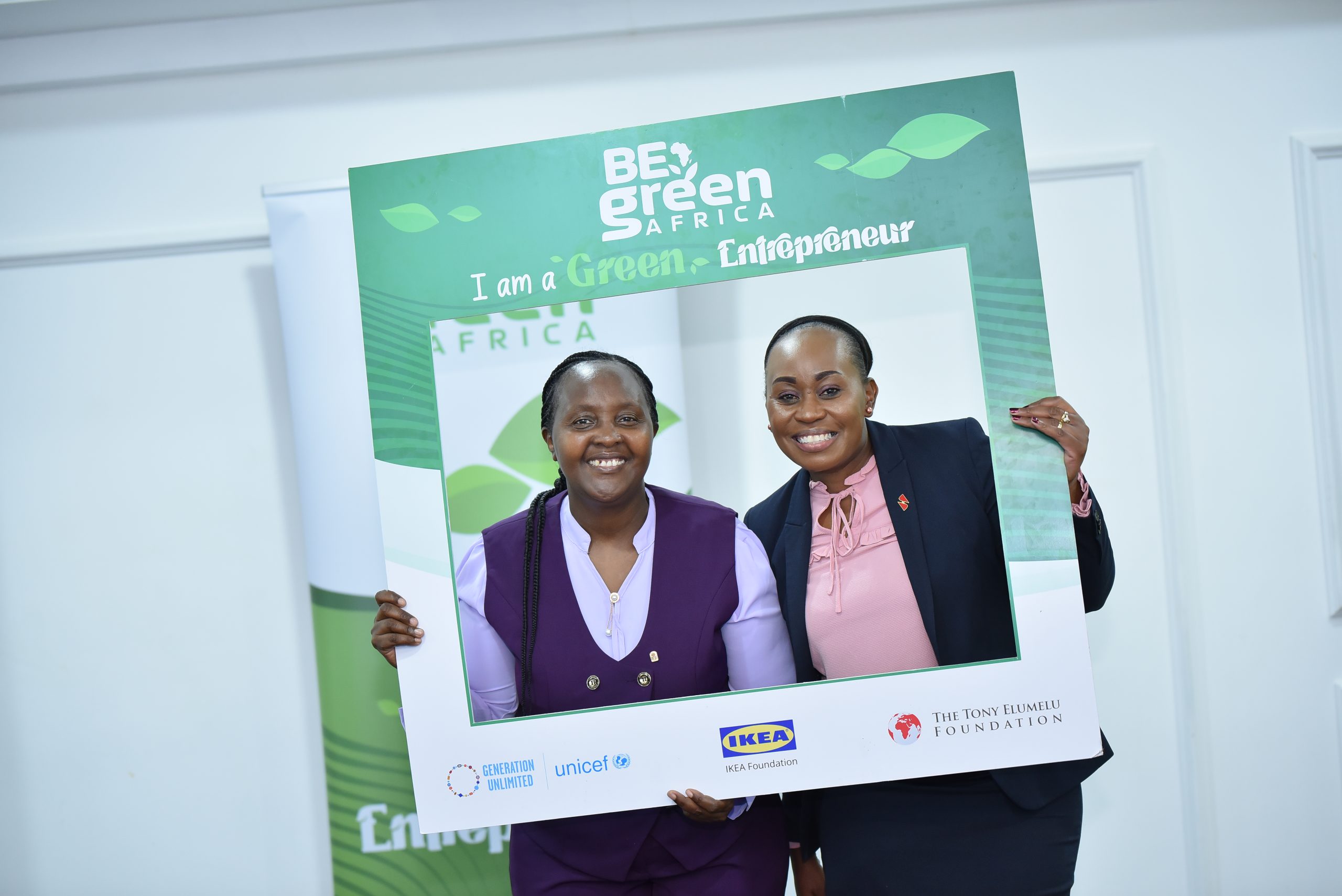
Greening Africa Through Entrepreneurship: From Sahel Start-Ups to Sustainable Economies
At the heart of Africa’s economic transformation lies a powerful force: entrepreneurship.
As the continent contends with rising climate vulnerability and deepening economic disparities, homegrown start-ups are emerging as key drivers of sustainable development. Nowhere is this more evident than in the Sahel region, where a new generation of African entrepreneurs is addressing environmental degradation, youth unemployment, and food insecurity; often simultaneously.
Since the launch of the Tony Elumelu Foundation (TEF) Entrepreneurship Programme in 2015, TEF selected over 24,000 young African men and women entrepreneurs for empowerment by granting them access to a world-class training, expert mentorship, networks and digital tools, and a non-refundable seed capital of $5,000 each. Over 2.5 million young Africans granted access to training on TEF’s proprietary digital platform TEF Connect, and over 4 million households across the continent have been positively impacted by the Programme.
Through strategic partnerships, TEF has catalysed entrepreneurship across Africa, including fragile regions like the Sahel, ensuring that Africa’s youth are not only creating jobs but are also fueling green innovation at the grassroots level.
Building Momentum: The TEF-UNDP Sahel Programme
The Tony Elumelu Foundation partnered with the United Nations Development Programme (UNDP) to identify, train, mentor, fund, and create employment for 100,000 entrepreneurs starting with Africa’s Sahel and Lake Chad regions over a 10-year period.
The pilot programme ran from 2019 to 2020, a $5 million intervention that empowered entrepreneurs living in vulnerable and under-served communities in seven Sahel countries.
The countries covered in the pilot are as follows: Northern Nigeria (excluding Abuja & Kwara), Niger, Chad, Cameroon, Mauritania, Mali and Burkina Faso. The pilot was run with a focus on the rural areas and a push for inclusive representation.
The Sahel Region
Stretching across 11 countries from Senegal to Sudan, the Sahel is a region defined by extremes. It is home to over 135 million people yet faces some of the world’s most acute environmental challenges: desertification, erratic rainfall, soil degradation, and water scarcity.
Yet within these challenges lies extraordinary potential. The Sahel is rich in solar energy, vast arable land, and a youthful population of over 60% under 25 years old. With the right support, this dynamic region is becoming a hub for green innovation, driven by entrepreneurs who intimately understand the land and its needs.
Economic and Environmental Implications
The rise of entrepreneurship in Africa, particularly in regions like the Sahel, has far-reaching benefits:
- Job Creation: Start-ups are creating employment opportunities for youth and women, contributing to social stability and local empowerment often in rural areas which was a rare occurrence pre-empowerment.
- Climate Adaptation: By offering solutions in renewable energy, water conservation, and sustainable farming, entrepreneurs are helping communities adapt to climate impacts.
- Ecosystem Restoration: Environmentally conscious ventures promote responsible land use, waste reduction, and biodiversity conservation. Over the years, we have supported agri-preneurs who use organic composting e drought-resistant crops, reducing harmful chemical use and soil erosion in rural communities.
- Reduced Dependency on Aid: Empowering local innovation reduces long-term reliance on foreign assistance, replacing it with homegrown resilience. We are shifting focus from external humanitarian assistance to internal capacity-building and business sustainability.
As our Founder, Tony O. Elumelu, CFR himself asserts:
“Entrepreneurship is how we take ownership and demonstrate leadership in our continent’s affairs; it is not up to anyone else to develop Africa but us.”
Supporting Entrepreneurship Going Forward
In scaling the environmental and economic benefits of entrepreneurship in the Sahel and beyond, coordinated multi-stakeholder support has been essential.
Governments should introduce tax incentives and streamline regulatory processes for sustainable enterprises, while integrating environmental entrepreneurship into national development strategies.
Expanding access to finance through targeted green funds and blended finance models, combining public, private, and philanthropic capital, will help early-stage startups and young entrepreneurs succeed.
Equally important is developing human capital: entrepreneurship and sustainability education must be incorporated into school and university curricula, backed by mentorship, incubation, and customised acceleration programmes.
The Bottom Line
Our Founder is a firm believer that Africa’s young people need investments, not aid, to drive meaningful change and economic growth. His stance on aid is rooted in his economic philosophy of Africapitalism, which emphasises the role of private sector-led development and investment in Africa, rather than aid, because aid often fails to address the root causes of poverty and inequality, while private sector investment can create jobs, foster economic growth, and empower individuals.
This is what is happening in the Sahel. In one of the toughest regions on earth, young Africans are showing us that sustainability is not a luxury — it is a lifeline. And it is entirely within reach.
With the right support, Africa’s youth are creating greener communities, while building a stronger, more self-reliant Africa.

